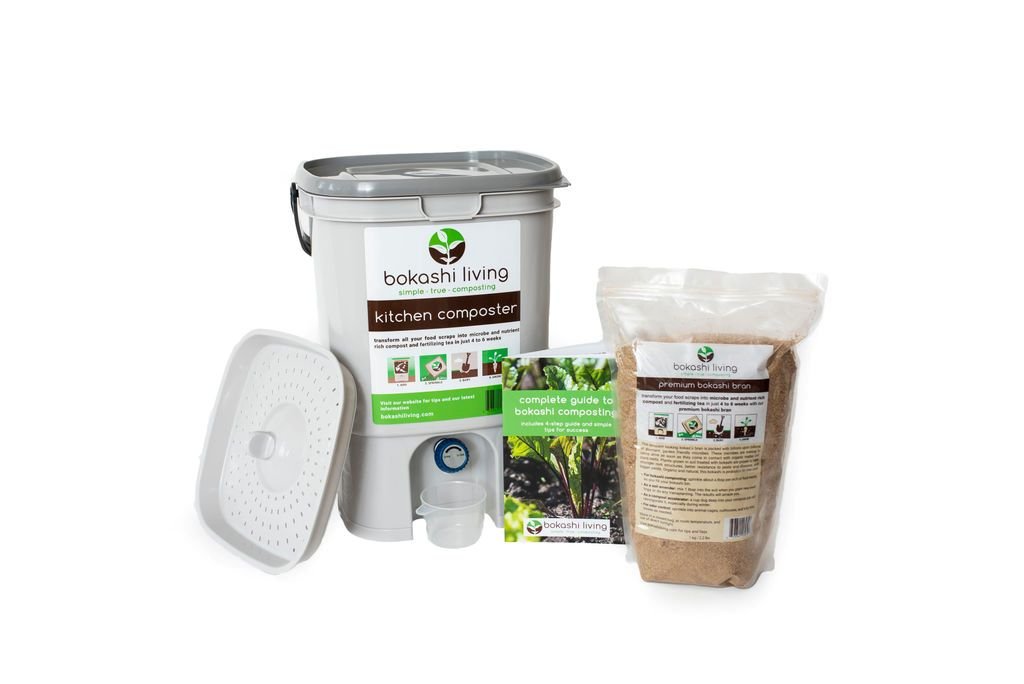What's Bokashi Composting?
/Bokashi composting is a fundamentally different process than traditional backyard composting. While traditional composting happens by decomposition, bokashi uses fermentation.
A traditional compost pile must be stirred from time to time to create air pockets for the organisms that break down the organic material. Bokashi composting happens in an anaerobic environment, and breaks down the material much faster. It takes about two weeks to fill a bokashi bucket, and another two weeks to ferment.
With bokashi composting, you can put meat, bones, dairy, and cooked items into the mix. Sprinkle the organic material with bokashi bran—about one tablespoon per inch of waste. Once the bin is full, set it in a warm place. Empty the bokashi tea every couple of days and use it to feed your plants.
After two weeks, you should smell a pickle-like odor, the food waste will be softer, and you may see white mold. These are indicators of successful fermentation. Bury the fermented food waste directly in your garden, compost pile, planters, or soil factory. In two more weeks, the pre-compost will be incorporated into the soil web to the benefit of all plants and soil in the surrounding area.
Healthy soil is full of life, including macrobes (worms, bugs) and microbes (bacteria, yeasts, and fungi). Healthy soil begins with microbes. Soil biologists have determined that plant roots are actually a two-way system. Plants send almost 40% of their energy down into their roots, where it is released in the root zone in the form of sugary carbohydrates intended to attract microbes. Microbes, by digesting the minerals and nutrients from the soil around the roots, feed the plants. Bokashi compost encourages microbial growth and strengthens the soil web.
Ready to give bokashi a try? A single-bin starter kit—including one bokashi bucket, one bag of bokashi bran, a guide booklet, and a cup to collect bokashi tea—is available for a member price of $75 from the Co-op at BBR. Additional 2.2-pound bags of bran are $14.45 each; one bag lasts three to four months.

